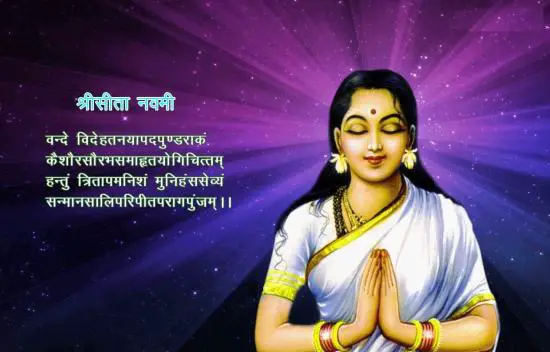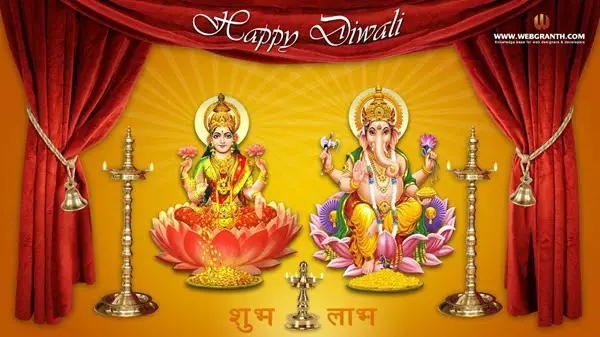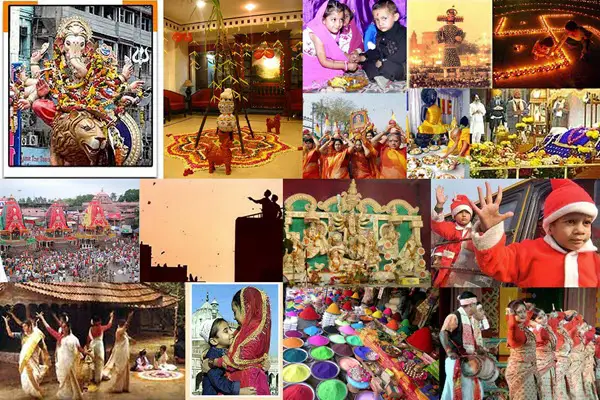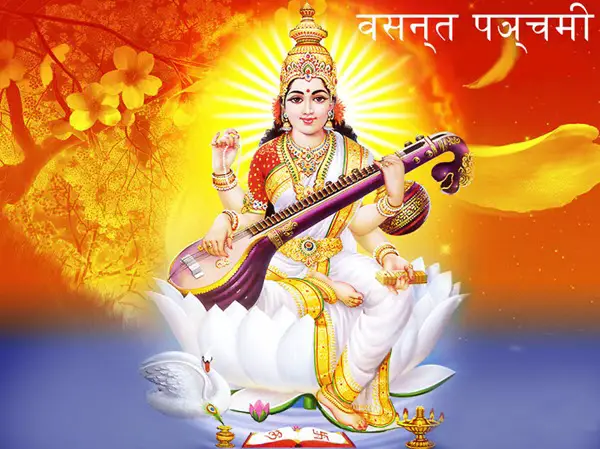Festivals are a central part of Indian culture. It would not be an exaggeration to describe India as a land of festivals. There are scores and scores of festivals that are celebrated with great pomp and devotion throughout India. One such popular and important festival is Sita Navami.
It is celebrated to honor the birth anniversary of Sita Mata. Sita Navami is also known as Sita Jayanti or Janaki Navami.
Table of Contents
Who is Goddess Sita?
Sita Mata is an incarnation of Goddess Lakshmi, who took birth in the kingdom of Mithila in Treta Yuga. Mata Sita was the daughter of Janaka, who was the king of Mithila. Sita was married to Lord Rama.
Sita Mata is also known as Siya, Janaki, Maithili, Vaidehi, or Bhoomija. She is the central character in the Hindu epic Ramayana.
Sita Mata is known for her dedication, self-sacrifice, purity, and courage. She accompanied Lord Rama during exile, where she was abducted by the demon king Ravana.
Mata Sita was imprisoned in the Ashoka Vatika of Lanka by Ravana. She was finally rescued by Rama, who overpowered and killed Ravana.
Sita Mata underwent Agni Pariksha (an ordeal of fire), proving her purity and being accepted by Lord Rama. After proving her purity, Sita returned to Ayodhya, Bhagwan Rama, and Laxman, where Lord Rama and Sita were crowned King and Queen. She gave birth to two sons, Luv and Kush.
Finally, Sita Mata returned to Vaikuntha Loka after reuniting her two sons with their father, Rama. Sita Mata symbolizes purity and fertility and is worshiped by millions of people. The devotees are blessed with growth, prosperity, and intelligence.
About Sita Navami
Sita Navami is an important Hindu festival that celebrates the birth anniversary of Goddess Sita. It is mostly celebrated by married Hindu women who keep fast on this day for their husbands’ long and healthy lives.
Sita Ji Navami is celebrated on the Navami Tithi of Shukla Paksha during the Hindu month of Vaishakh. Goddess Sita was believed to be born in the Pushya Nakshatra on Tuesday of the Navami Tithi of Vaishakh month.
According to the Hindu calendar, Sita Navami is celebrated exactly one month after Rama Navami.
Sita Navami is celebrated with immense devotion and joy all over India. Married Hindu women worship Goddess Sita to get blessings for their husbands’ long and successful lives.

Image Credit: desicomments.com
Significance of Sita Mata Navami
Sita Navami holds great religious significance in the Hindu Religion. Goddess Sita is an incarnation of Goddess Lakshmi, the consort of Lord Vishnu and the Deity of wealth, prosperity, and luxuries.
Sita Mata is considered to be the mother of all mortals and other living creatures. She is an embodiment of love, sacrifice, devotion, and purity.
Her love and devotion to Lord Rama are considered to be of the highest order. She is recognized for her patience and devotion toward her husband, Lord Shri Rama.
So, married Hindu women take Goddess Sita’s blessings on the day of Sita Navami and pray to be blessed with virtues such as purity and sincerity.
They pray to Goddess Sita for the long and successful life of their husbands. They seek Devi Sita’s blessings for remaining ‘Sumangali,’ that is, dying before their husbands. People perform puja rituals and Vrata (fast) on Sita Navami so that they may be blessed with a joyous and contented married life.
The story of Sita Navami
According to Hindu mythology, Goddess Sita is the rebirth of Vedavati. Vedavati was a great reverent woman who wanted to marry Lord Vishnu. Her father was a great Brahmarishi Kusadhvaja.
Vedavati performed a deep penance and tapas to please Lord Vishnu. At that time, Ravana, the demon king of Lanka, was obsessed with her beauty and tried to outrage her.
Vedavati escaped from Ravana and jumped into the fire. As she was in Tapas, she did not curse Ravana. However, she said that she would take rebirth to destroy Ravana.
Vedavati took rebirth as the daughter of Ravana and Mandodari. Astrologers predicted that the born girl child would be the reason for the death of Ravana. So, Ravana threw the girl child into the sea. However, the girl child was saved by the Sea Goddess, Varuni. She gave the girl child to Bhoomi Devi – Goddess Earth.
When Janaka, king of Mithila, plowed the land, he discovered a baby girl in a golden casket. Janaka considered it a gift from Goddess Earth and adopted the child. She named the girl child ‘Sita.’
How is Sita Navami celebrated?
Sita Navami is a festival honoring the birth anniversary of Goddess Sita. On this day, Hindu devotees, especially married women, worship Devi Sita, Lord Rama, and Laxman.
A small puja mandap is installed, which is decorated with colorful flowers. The idols of Devi Sita, Lord Ram, Laxman, King Janaka, and Mata Sunayana are placed in the mandap.
As it is believed that Mata Sita emerged from a plowed land, Goddess Earth is also worshiped on this day.
Devotees perform puja by offering til, rice, barley, and fruits. Special “Bhog” is prepared and distributed amongst the devotees after the completion of the puja ceremony. Aarti is also sung.
On Sita Mata Navami, married women observe a strict fast, and not a single grain of food is taken until the completion of the puja ceremony. Married women observe fast for the long life and well-being of their husbands.
Special rituals and prayers are held in Ram-Janaki temples. Rituals include Sringar Darshan, Maha Abhishekam, and Aarti. Devotees sing devotional songs and take out processions of the idols of Lord Ram and Mata Sita. Verses of the Ramayana are also recited in temples.
The festival is celebrated all over India with great devotion and enthusiasm. The Sita Navami is a festival to seek Goddess Sita’s blessings for a long life full of happiness, health, and prosperity.
Sita Navami Date 2024
Sita Navami will be celebrated on 16th May 2024, Thursday.
The Sita Navami Puja Muhurta is from 10:56 AM to 01:39 PM.
Navami Tithi Begins: 06:22 AM on 16th May 2024
Navami Tithi Ends: 08:48 AM on 17th May 2024
Sita Navami is an occasion to remember and honor Goddess Sita. One is blessed with a long life and abundant happiness by celebrating Sita Navami.




